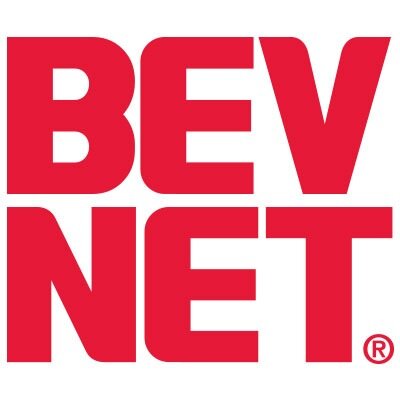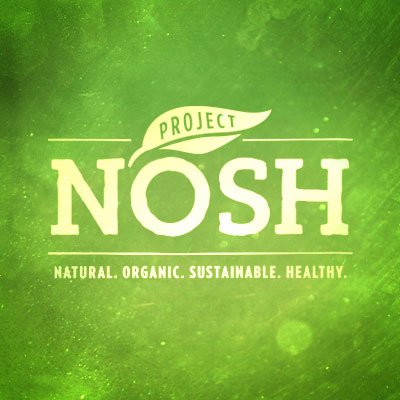
Another Scandal with an Organic Dairy Mega-Farm Should Serve as a Wake-Up Call to all Industry Stakeholders
The organic industry just received another harsh reminder — unless we truly deal with our problems, the integrity of the organic seal will only suffer further damage.
With The Washington Post’s investigation of Aurora Dairy in the rearview mirror — and largely ignored by the USDA — the dairy scandal that we are now facing is Natural Prairie Dairy, a 14,000-head organic dairy in Texas.
The Animal Recovery Mission (ARM) released undercover video of animal abuse taking place at Natural Prairie Dairy, a farm that supplies product for organic store brands around the country at Target, Costco, Safeway, Kroger and Publix, and soon at Meijer. Among other things, ARM reported that cows were being kicked, hit with shovels, stabbed with screwdrivers, inhumanely tied, left in uncomfortable positions for hours, and falling into cesspools while almost drowning.
Due to this video footage, Kroger announced that it has suspended milk deliveries from the Texas-based organic dairy until an investigation is complete.
“It is a very grim story whenever animals are treated like this,” said Dave Chapman, Executive Director of The Real Organic Project. “What is just as alarming to me is that this is obviously a huge CAFO certified as organic. These people should not only be arrested for animal cruelty, but their farm should be de-certified as organic and the organic certifier should be de-certified as well.”
For several years, The Cornucopia Institute has been banging the drum about organic factory farms, a plea which has mostly fallen on deaf ears by government regulators. As a result, these organic mega-dairies are flourishing and have been allowed to operate on an unlevel playing field, which has had the effect of helping to drive down the price of organic milk and pushing many small family dairy farms into insolvency.
Additionally, the USDA has demonstrated a complete inability to establish a clear and consistent set of rules when it comes to organic dairy — most notably, the origin of livestock rule. This has left both politicians, including Rep. Chellie Pingree (D-ME), and industry leaders apoplectic.
Melissa Hughes, General Counsel and Chief Mission Officer at Organic Valley, called out one USDA accredited organic certifier, Idaho State Department of Agriculture, and said that its “egregious interpretation of how livestock (dairy) achieve organic status……is a new level of inconsistency we have never seen in 30 years of organic dairy.”
With the industry in a “race to the bottom” to offer shoppers the lowest possible prices, the question is whether buyers at the biggest retailers can set the tone and demand better, more comprehensive standards — above and beyond just the USDA organic seal.
If they do not do this, they could very well suffer the consequences, as their private-label organic milk brands will be viewed as untrustworthy in the eyes of consumers.
And it is precisely these consumers who have the power to drive badly-needed change in our industry.
“There are 35 million people who regularly buy organic in America. If we can just get one million of these people to go to every supermarket in America and demand answers to — Are these eggs from a CAFO? Are these berries hydroponic? Is this organic milk from a factory farm? — we will win in a week. Everything will change,” put forth Dave Chapman.
This Natural Prairie Dairy scandal is also further validating the need for the two impending add-on labels to the USDA organic seal — The Real Organic Project and Regenerative Organic Certification, two private certifications that prohibit factory farms and hydroponics.
While no one can expect the USDA to be perfect and there will always be bad actors in the system, the truth is that serious flaws in the organic program have been tolerated for far too long, with little indication from the USDA that meaningful change, in the form of strict enforcement or new rulemaking, is on its way.
As such, it is in the hands of organic consumers to demand something different.
While it will not be easy, the good news is that it is absolutely possible.
—-
In my decade of writing about organic, I believe that there are very few people who articulate food in a more approachable, easy-to-understand way than Maria Marlowe, a Real Food Evangelist and author of the excellent book The Real Food Grocery Guide.
In our conversation, Maria discusses her own health challenges with food during her teenage years, the importance of being a body detective, the biggest mistakes people make with food, and the one food that people should eat every single day.
Not only will this episode with Maria Marlowe help people better understand the intricacies of food, but listeners will also get some very sage advice that Maria’s grandmother shared with her at a very early age.
Click HERE to learn more. Or, you can listen and subscribe to The Living Maxwell podcast on iTunes, Stitcher, Spotify, TuneIn and Google Play.
Please enjoy!

 |
With gratitude, 
Max Goldberg, Founder |
Quick Hits
* IMPORTANT: This Monday is the deadline to comment to the USDA about its proposed rule as to how GMO companies will be able to “self-regulate” their own GMOs.
* To learn more and to leave a comment, click HERE.
* In last night’s Democratic debate on CNN, Rep. Tim Ryan (D-OH) talked about regenerative agriculture. A huge deal!
* Also, The New York Times just profiled his agricultural policies, which include helping organic farms.
* The next time you go to New York City’s Union Square Greenmarket, you might want to look for this vendor.
* MOFGA (The Maine Organic Farmers and Gardeners Association) has announced its Local and Organic Pledge.
* Documented in a new video, Beyoncé’s pre-2018 Coachella diet was “22 Days Nutrition” — a diet consisting of only organic, plant-based food.
* 1 Hotel West Hollywood uses native plants throughout its design – including 100-year-old olive trees, an organic, sustainably-grown vegetable garden, and an accompanying beehive. Wow!
* The Northeast Organic Farming Association of Vermont is set to host Farmer Olympics.
* You can now get a scoop of organic tea ice cream in Boston.
* If you missed last week’s newsletter about the potential for gene-edited crops to be allowed in organic, I urge you to share it with your network.
New Organic Products
Plant-Based Creamers by Mooala
To accompany its line of bananamilks, Mooala has just rolled out plant-based organic creamers. They come in three flavors — vanilla bean, oats ‘n’ crème, and banana nut — and do not contain gluten, carrageenan or sugar.
Greek Breakfast Biscuits by Olyra
Using a combination of ancient grains, fruits and spices, Olyra is a Greek organic breakfast biscuit. They are Non-GMO Project verified, plant-based, and come in three flavors — fig anise, hazelnut carob, and cinnamon tahini.
Fruit & Veggie Smoothie Pouches by Stonyfield Organic
Famous for its organic yogurt, Stonyfield Organic has made a move into the plant-based category with its fruit & veggie smoothie pouches. Made with only six ingredients, these pouches come in three flavors — berry cherry blast, tropical twist, and strawberry smash — and are available nationwide at Whole Foods Market.
Want your product profiled here? Learn more
Weekly News Summaries
New British Prime Minister Advocates for GMOs
In his inaugural speech, Boris Johnson said that he wants to "liberate the UK’s extraordinary bioscience sector from anti-genetic modification rules and let’s develop the blight-resistant crops that will feed the world."

Study: Weedkiller Found In Kids At Higher Levels Than Parents
By Julie Watts
A new report found that 90% of the families tested have the cancer-causing glyphosate in their bodies, with most kids having much more than their parents.

Why Whole Foods Hasn’t Satisfied Amazon’s Grocery Appetite
By Karen Weise
Instead of Whole Foods being the answer to Amazon’s grocery ambitions, it seems to have only whetted executives’ appetite.

The Fresh Market Finalizes Comprehensive Beverage Overhaul
By Brad Avery
A look at how Dwight Richmond, one of the best and most knowledgeable buyers in the organic industry, overhauled The Fresh Market's beverage set.

Urban Remedy Enters the East Coast Via Whole Foods Partnership
By Carol Ortenberg
Starting today and rolling out over the next month, Urban Remedy will be selling its organic juices, snacks and ultra-fresh meals at 18 Whole Foods locations in the New York metropolitan area.
Grocers are Thinking More Ambitiously about Private-Label Products
By Micah Maidenberg and Jaewon Kang
Kroger generated some $22 billion in sales last year from its private-label products, or about 18% of the company’s total, up from $15 billion of sales in 2011.

Former FDA Commissioner on How to Move Forward with CBD
By Scott Gottlieb
With CBD facing many legal, regulatory and business hurdles, Scott Gottlieb offers his opinion as to a way forward.

Sun Basket is Now Offering Ready-to-Eat Products
By Mary Ellen Shoup
Organic meal kit service Sun Basket is now offering CPG products, such as those from Hodo Foods and Hu Kitchen, in its boxes.

Recap of The Sustainable Foods Summit in Amsterdam
Green packaging materials, redirecting food waste and adding social value in supply chains were a few of the key topics at last week's summit.
In New York state, a New Group Works the Soil
Women and non-binary people are running some of the best-known organic farms in Long Island, highlighting the central role that these groups are playing in the organic farming movement.
The material in this newsletter is copyrighted and may be reprinted by permission only. All requests must be in writing. Please use our contact form to request republication rights.
Newsletter Archive
Quick Hits
* IMPORTANT: This Monday is the deadline to comment to the USDA about its proposed rule as to how GMO companies will be able to “self-regulate” their own GMOs.
* To learn more and to leave a comment, click HERE.
* In last night’s Democratic debate on CNN, Rep. Tim Ryan (D-OH) talked about regenerative agriculture. A huge deal!
* Also, The New York Times just profiled his agricultural policies, which include helping organic farms.
* The next time you go to New York City’s Union Square Greenmarket, you might want to look for this vendor.
* MOFGA (The Maine Organic Farmers and Gardeners Association) has announced its Local and Organic Pledge.
* Documented in a new video, Beyoncé’s pre-2018 Coachella diet was “22 Days Nutrition” — a diet consisting of only organic, plant-based food.
* 1 Hotel West Hollywood uses native plants throughout its design – including 100-year-old olive trees, an organic, sustainably-grown vegetable garden, and an accompanying beehive. Wow!
* The Northeast Organic Farming Association of Vermont is set to host Farmer Olympics.
* You can now get a scoop of organic tea ice cream in Boston.
* If you missed last week’s newsletter about the potential for gene-edited crops to be allowed in organic, I urge you to share it with your network.



